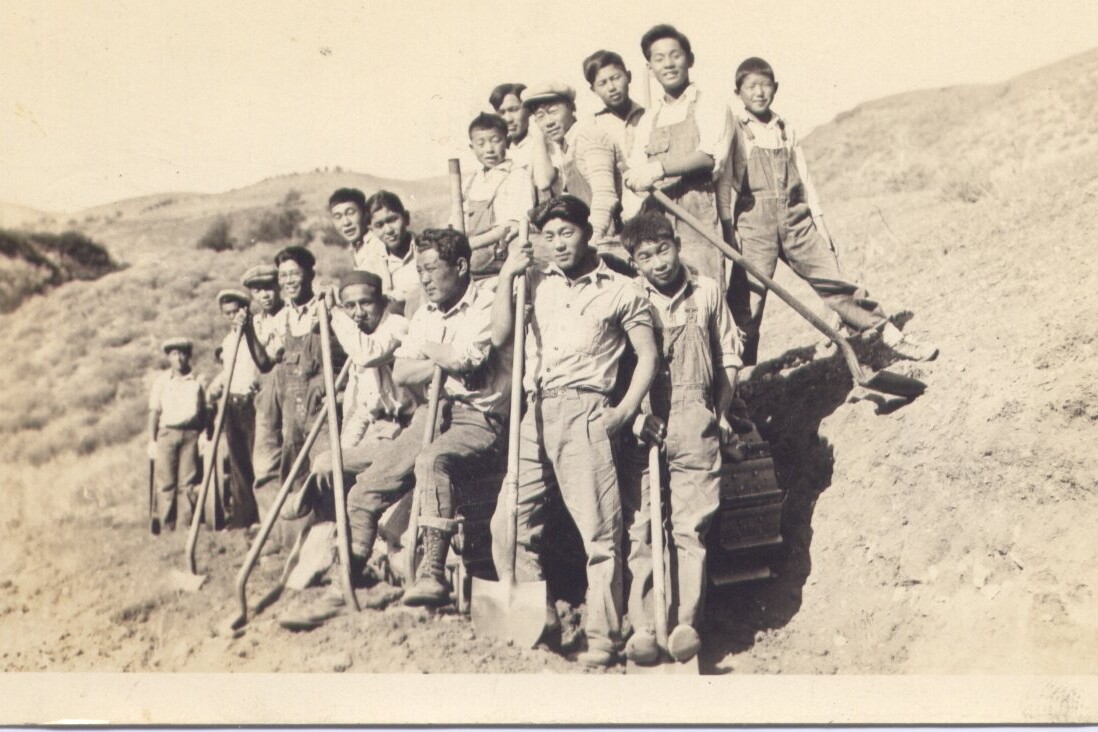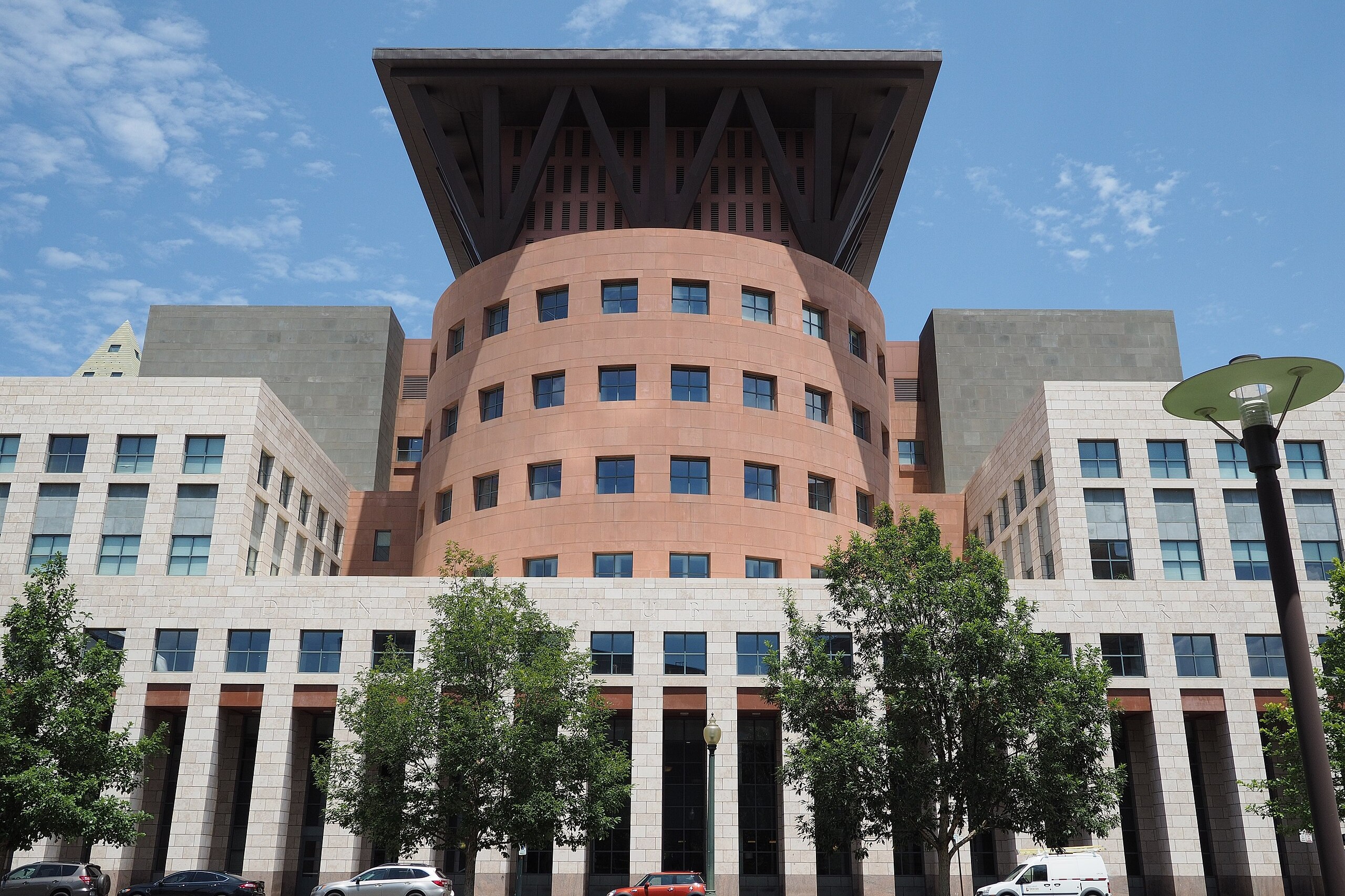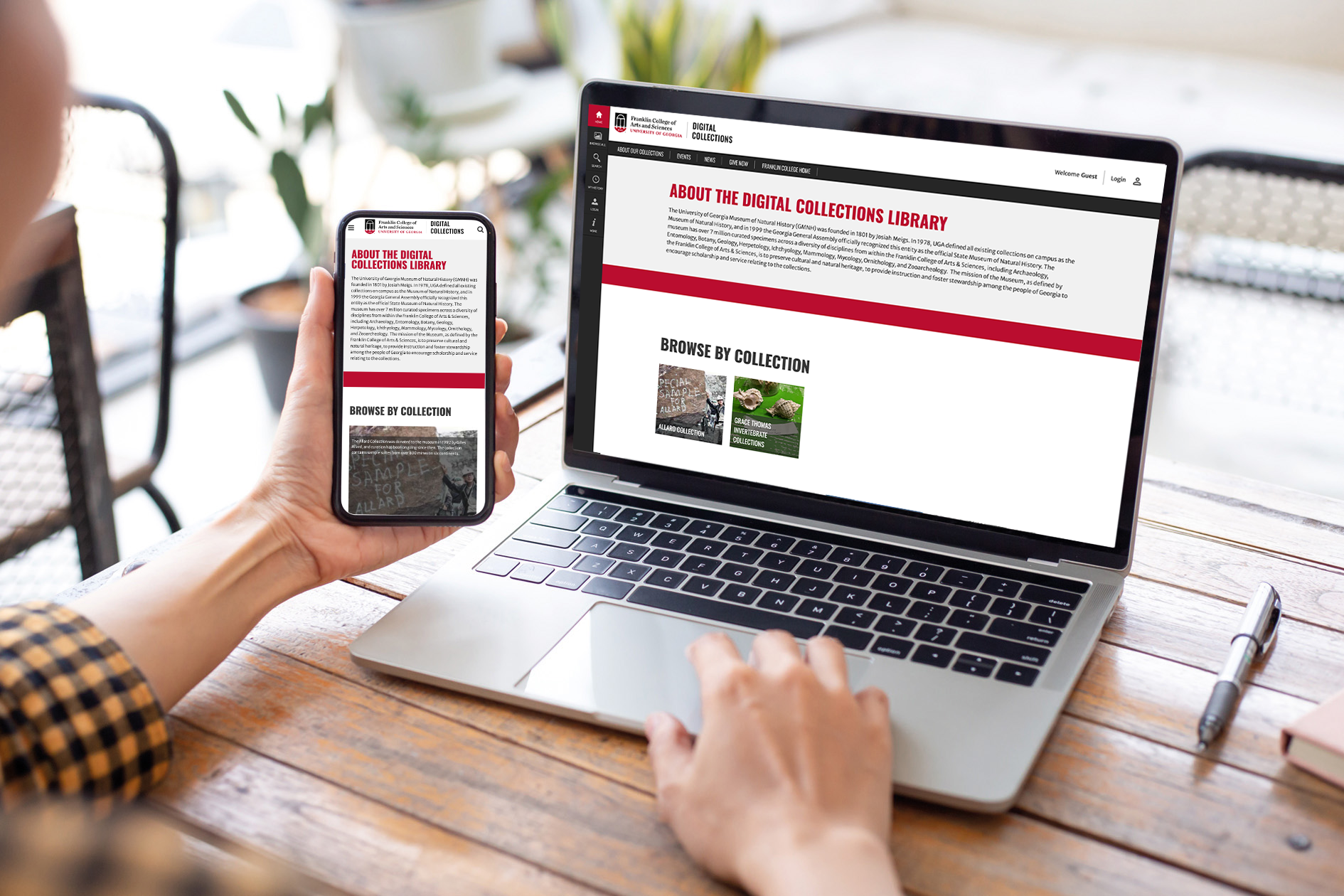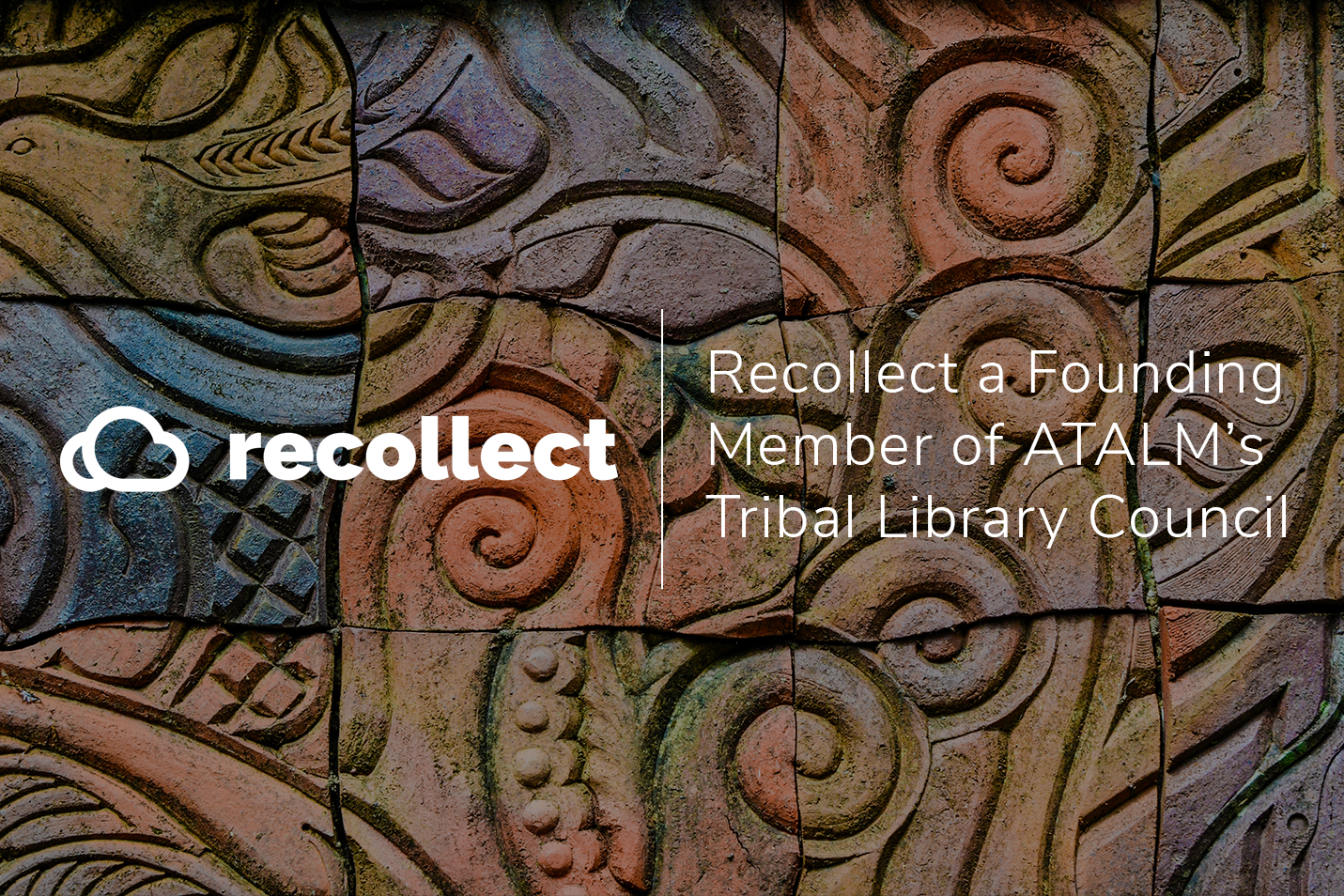What is a community?
Communities are ambiguous and do not always adhere to certain geographical places, organisations, or buildings — they are often more fluid and encompass a wide-range of attributes. People can belong to more than one community and will often participate in multiple communities each day.
Relationships are a key part of communities: people can foster new relationships and strengthen their existing ones. Members come together to meet common needs, share their experiences, and contribute to a collective knowledge base.
At Recollect, we believe communities can be defined however you choose — it could be your internal staff, your visitors, or simply people with common interest in your collections. Recollect is an online platform that can give you the tools to strengthen and grow your community.


Why are communities important?
Members should feel a sense of compassion, belonging, and trust towards others in their community. Stimulating these kinds of relationships within your community encourages people to feel comfortable collaborating with others and sharing their ideas. This can increase the chance that your organisation can successfully implement strategies like crowdsourcing.
Storytelling has always been an key feature of society: once people might have gathered around a fire to hear tales about their ancestors, now we can use online platforms like Recollect to share these stories on a global scale. Preserving the knowledge imbued within our culture can inspire a wider community of people to engage with the past and protect our history for the benefit of future generations.
Communities foster a sense of “we are all in this together” and a feeling that the whole is bigger than the individual parts. A shared identity matters because it is what makes a community flourish. It changes how people see others in their group and strangers are transformed into trusted peers simply by their membership within that community.
Move your collections online with Recollect and provide a space for your community to thrive online.

Why do we need online communities?
Online communities promote inclusion and are a place where people can share their interests in a safe and accessible environment. Institutions and organisations receive many advantages by building an online community — ultimately, it helps gather and retain support for their mission e.g. the preservation of cultural heritage.
Building an online community can help your organisation.
- It can be a valuable resource for your visitors or stakeholders. When people sign-up to become a member of your online community, they will be able to easily find information they are interested in and will be encouraged to collaborate with the community.
- People will develop relationships with others who support your organisation, resulting in stronger connections to your organisation.
- A thriving online community improves your reputation and leadership status.
- It can boost support for your organisation and the work you do, e.g., the preservation of cultural heritage.
- You can encourage your community to share their own knowledge and stories about your collections. This allows you to gather invaluable information and insights.
- You can promote co-creation and crowdsourcing efforts: members can work together towards a common goal and feel involved with your organisation.
- People join communities to feel accepted and share their passions — those passions might become your collections!
- People who are excited by what your community offers will encourage their friends to join too, growing the reach of your collections and ensuring your stories are heard.
How can you build your community online?
So, how can you begin building your community online? And how can you can encourage people to be a part of it? Once you have moved your collections online with Recollect, you can use the tips below to start growing your online community.

Announce your online status
Remember to start small — you do not have to rush ahead and make big gestures to attract people to your community. Once you have moved your collections online, building a community to engage with your collections can be as simple as notifying people about your site. Leverage your existing online audiences or followers: you could send out a newsletter to peers in your industry, hold a webinar to introduce your online collection, or let a wide range of people know about it on your social media. Building a community takes patience and they are often slow to grow, but focusing on building a solid base membership and nurturing those connections will pay off in the long-term.
Offer memberships
The next thing you can do to help cultivate your community is recommend that people sign-up to a membership to demonstrate their commitment. People frequently want to be the first to try something new, to be seen as an early adopter, and to feel as if they can share something noteworthy with their friends. One way to make your community appealing is to ensure there are real benefits for members after they sign-up. They should feel like they receive something special or noteworthy in contrast to the general public. This is easy to endorse with Recollect, people can register to your site as a member and can be given greater levels of access to your collections. You can choose what members can see, how they can engage and in how much detail, compared to the general public.
Add value
Your community will be more successful if you promote an atmosphere of helpfulness. Make sure you tell your members that you are available to assist and support them. Prove this by answering inquires quickly, sending out newsletters detailing how members can get the most out of your site, or remind them that your community is a safe space to connect with others who share similar passions and interests. Helpfulness adds value to your community because it becomes a hub where people can seek out relevant information and research. The more collections you add to your Recollect site, the richer resource you will create for your community. You could collaborate with other communities, who offer something similar, and combine efforts to build something larger.
Empower your community
Once you have secured strong initial membership base that will form the foundation of your online community, you can take a step back and let your members promote the community themselves. Your role is to facilitate community engagement by encouraging your members to start conversations, share their ideas, and build relationships with one another. Communities will often split up into smaller groups to discuss sub-topics or individual members might message each other directly — they will be grateful to you simply for opening up these connections to them.
Guidelines and promotion
As your community develops, you will start recognising aspects that add real worth to your member’s lives and what things you should encourage to increase engagement with your collections. You will be able to develop specific community guidelines based on member behaviours and lessons you have learnt along the way. At this point it is important to promote the specific benefits your community can offer to its members. You can do this through:
- A referral programme — ask your members to send an email invite to their friends and family.
- Your organisation’s newsletter — let people know what value they can find by joining your community.
- Social media — share community highlights and content generated by your members on your organisation’s Facebook, Instagram, and Twitter. Let a wider audience base see what they might be missing out on.
- Send invitations to “influencers” — ask people respected within your sector to join your community. Share with them how the community can benefit them personally. Make an attractive offer.
- Targeted outreach — advertise your community in relevant magazines, newsletters, blogs, and publications.
- Personal network — send invites to your own networks, your family, and friends. They will likely have similar interests.
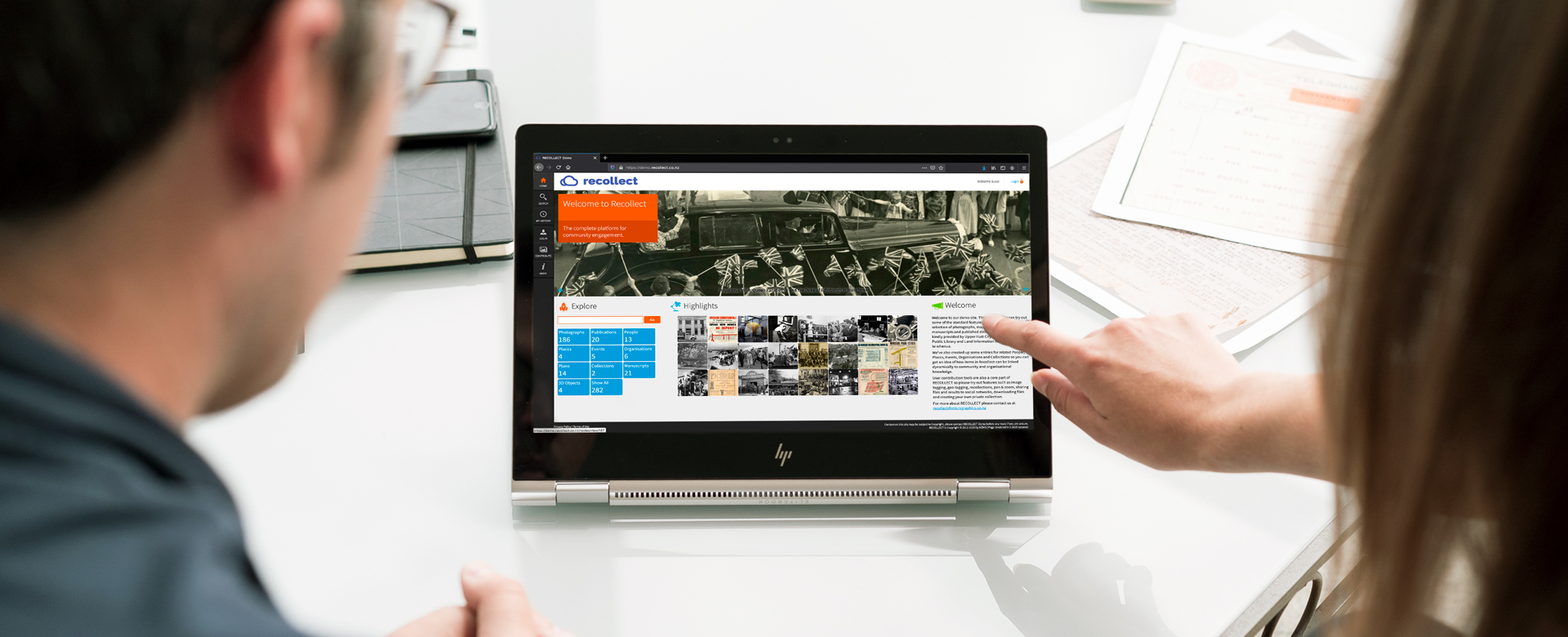
Online communities support cultural heritage preservation
Fostering a sense of community is important for the protection of cultural heritage. Online communities can help you meet your organisation’s mission: whether that is educating people about the importance of cultural heritage preservation, or getting the wider public interested and engaged with our history. Recollect can help you build a strong and unique community that will not only engage with your collections, but also add value to them. Your community can be entirely based on people’s desire to find knowledge and inspiration from your collections.
Online communities help your organisation better listen to the needs of its members — who represent your target audience, customers, or visitors. All interactions between members can be preserved digitally which gives you irreplaceable insights relating to their thoughts and ideas about your organisation. You can respond sincerely to questions or feedback and show your members you are listening to them as well as paying attention to their needs. This builds a strong personal relationship between your organisation and its members, encouraging long-term loyalty. Communities help to fulfil the goal of your organisation and increase opportunities for fundraising, marketing, membership, and even sponsorship.
More than just inspiring good-will, online communities help bring organisations into the future by changing the way that people can interact and engage with important subjects like cultural heritage. Recollect is an online platform that can facilitate the growth of your community and increase engagement with your collections – ensuring their preservation long into the future.
References and resources
- Byrne, S. (2018, November 2). How To Build An Online Community From Scratch. Retrieved from
https://sumo.com/stories/online-community-from-scratch - Chavis D. M., & Lee, K. (2015, May 12). What Is Community Anyway? (SSIR). Retrieved from
https://ssir.org/articles/entry/what_is_community_anyway - i-SCOOP. (2020, January 26). Benefits of online and/or social communities for organizations. Retrieved from
https://www.i-scoop.eu/online-communities-social-communities-primer/benefits-online-andor-social-communities-organizations/ - Merritt, E. (2018, June 29). The "Realness" of Museums' Online Communities: A Platform for the Future. Retrieved from
https://www.aam-us.org/2010/11/18/the-realness-of-museums-online-communities-a-platform-for-the-future/ - Pfortmüller, F. (2020, February 7). What does "community" even mean? A definition attempt & conversation starter. Retrieved from
https://medium.com/together-institute/what-does-community-even-mean-a-definition-attempt-conversation-starter-9b443fc523d0 - Simon, N. (2018, April 18). How Do You Define Community? Retrieved from
http://www.artofrelevance.org/2018/02/20/how-do-you-define-community/ - Volkman, E. (2011, August 24). What Is An Online Community? Retrieved from
https://www.socialmediatoday.com/content/what-online-community






